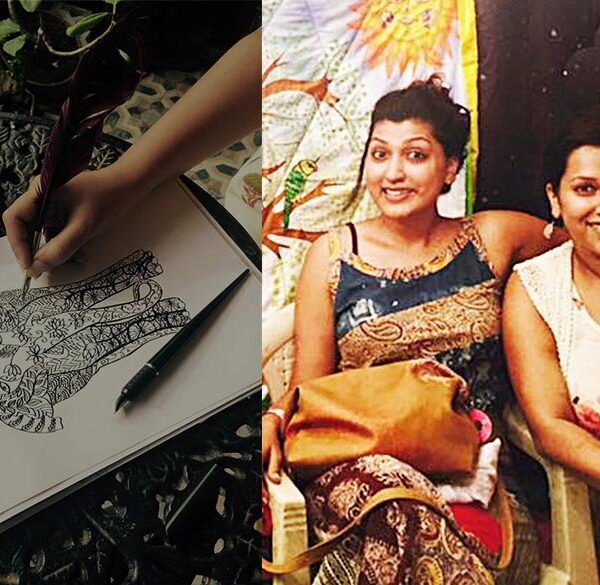When the Homeless Women are on their Period
Women spend around 3,000 days of their lives menstruating and thus, the cost of having a vagina turns out to be costly. Sanitary napkins are still taxed at 12% when bindis and sindoor are exempted. The products which keep women from bleeding all over themselves are apparently considered non-essential. The women who are begging on the streets for food and cloth, are expected to go to the shop and buy products taxed at 12%. Obviously, they find it easier to roll up an old t-shirt and shove it up in between their legs. Sounds logical?

Period, a phenomenon that occurs each month and causes blood loss, cramps not to forget the mood swings, is a hassle. Sometimes a little stain on the bedsheets disgusts the spouses and we are up cleaning the mess at 3 A.M in the night.
A little blood stain and such a hassle; imagine the plight of the ones with no access to sanitary napkins, tampons, menstrual cups whatsoever.
Yes, there are menstruating women around us who go through the agony of menstruation with no access to even absorb the blood.
The Census of India 2011 states that the country has more than 1.7 million homeless persons, of which 938,384 are located in urban areas. Homelessness is the worst violation of the human rights and homeless women, are among the most marginalized, ignored, and discriminated against in the country. Lying in a pool of blood with the bottoms drenched in it, sounds a little disturbing but it is reality for the ones living with no roof. Having a period while homeless is far more disturbing, upsetting, and crude than having a period lying in a bed with access to all the technological wonders the society has created to ease the period woes, especially the adsorbents.
For the homeless, that time each month is a reminder of the curses a vagina brings.

For women living on the streets getting a full meal in days is a luxury, it is unlikely for such women to be able to afford sanitary pads or tampons. While living on the streets, the main concern for women is finding a safe place to sleep, a meal or warm clothing and thus, dealing with periods is the last thought on their minds. Therefore, these women are forced to choose the cheapest resource available.
It is not just the dirty feeling that these women go through, poor menstrual hygiene can cause bacterial vaginitis, urinary tract infections, or may be toxic shock syndrome.
Moreover, around 20% of the girls in the country drop out of school after hitting puberty. In a country where we strongly support and fight for women empowerment, this number is frightening. And, all because of lack of knowledge on menstruation. The lack of knowledge and no access to sanitary hygiene makes puberty a traumatic experience for these countless young girls.
Obviously, with the social stigma attached to menstruation, women are too embarrassed to ask for sanitary napkins.

We promote safe sex in our country by giving out condoms for free. Why can’t the same be done for sanitary pads or napkins?
Menstrual care is as important as any other health care and thus, it becomes essential to at least provide the sanitary napkins at affordable prices.
The bloody taboo surrounding the menstrual cycle is being broken shackle by shackle by the efforts of various organisations.
Project Baala is one of the few initiatives that aims at spreading awareness about menstruation in rural schools along with providing rural women and girls with environment-friendly sanitary pads. Goonj with its Not Just a Piece of Cloth is aiming to provide sustainable pads to rural women. Cora is another company that gives girls in need in India to get a month’s supply of sustainable pads.

It has been 120 years since the pads were commercially available and still 85% of women in India use cloth as blood absorbent. The government needs to take action to promote better menstrual care in the country.
With the increasing number of homeless on the streets, the number of homeless women are also increasing and there is nothing that is being done to help these women out of a biological regularity.The battles that these homeless women fight are above our general struggles and the one against periods is absolutely incomprehensible. Sanitary pads are not a luxury. Period.












